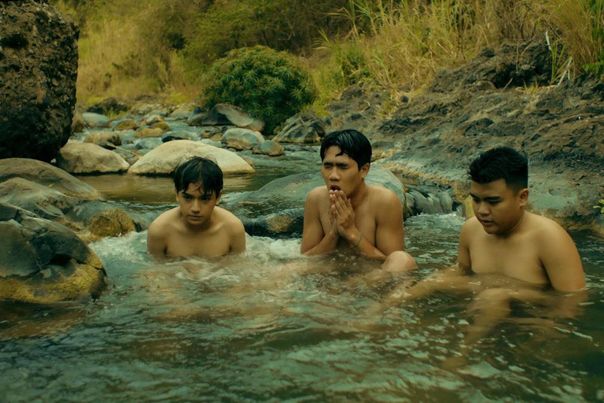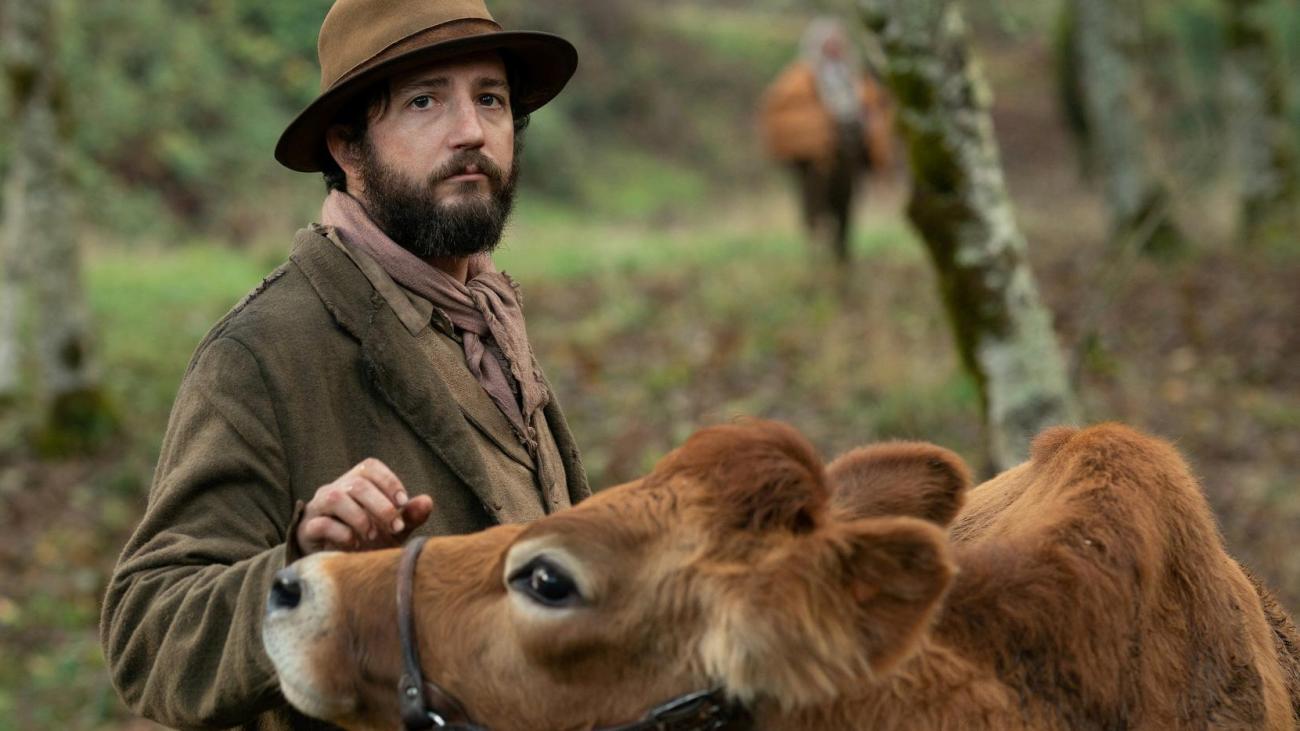Letters from Berlin: Cow Theft and Video Games
Half way through the fest, Maja Korbecka and Jakob Åsell write to each other about some of the most intriguing films they’ve seen
By Maja Korbecka and Jakob Åsell

© Ante Cheng
Dear Jakob,
I am writing to you from the office at Potsdamer Platz, trying to calm down after all the excitement of attending Jia Zhangke’s masterclass at Berlinale Talents. The running between venues left me wearing annoyingly rain-drenched shoes that will be my companions for the rest of the day. I hope you had more luck avoiding the downpour. However it is all worth it, because once a film starts we are transported to a completely different space and time.
This time I landed in the Philippines in the 90s with DEATH OF NINTENDO (Philippines), screened as part of the festival’s Generation Kplus sidebar. I was quickly immersed in the story. I joined the main characters hanging out in front of a convenience store, playing video games and planning to sneak out to the cemetery in the middle of the night to hunt for ghouls. The pop energy is all over DEATH OF NINTENDO but it would not be so immersive without Valerie Castillo Martinez’s brilliant script. She crafts one of the most amazing girl characters in teen films, very mature and critical of the world and people around her. She seemingly does not interfere much in the plot, observing others and controlling her actions. However soon it is evident that she is the one driving the action forward, in contrast to the three often indecisive boys.
I cannot say the same thing about TIME TO HUNT (SA-NYANG-EUI-SI-GAN, South Korea). While this Berlinale Special Gala offering struck me as a well-balanced mix of sci-fi slasher horror and action films, it is completely devoid of female characters, except for several minutes where the mother of one of the characters makes an appearance. In testosterone-filled Korean action cinema women are often relegated to such stereotypes. Male characters are free to explore a very wide range of different identities and emotions on screen, especially when it comes to showing weakness and vulnerability, which makes them more relatable. The characters are living in a post apocalyptic world characterized by violence and monstrous transformations neoliberalism, so familiar it slaps you in the face. In fact, the screening of TIME TO HUNT delivered also pain in its utter physicality when the sound volume of gunshots and explosions was way beyond the level a regular person can stand. Maybe the film was supposed to violate our ears for us to emphasize more with main characters, whose bodies are massacred throughout the film.
On the other hand, THE ASSISTANT (USA) was permeated with silent terror. This Panorama entry is told from the perspective of a young woman who aspires to become a producer but, as a beginner in the industry, she works as an assistant of the studio’s boss. The atmosphere is familiar to anyone who still remembers their first days working at the office, hiding in the corner to quickly devour the lunch and avoid boss’ remarks. In this case the environment is extreme, because THE ASSISTANT takes place in the headquarters of a film production company that has more complex inner rules and regulations than most workplaces. The time seems disrupted, extended beyond the length of one day, because at the office time is not your own anymore. The film explores the horrors of sexism, psychological violence, sexual harassment, gender inequality and hierarchy that makes you cringe.
As I write this I am waiting for the meeting with Louis Henderson and The Living and the Dead Ensemble. You know how I felt about the film, and it’s possible I might one day turn into The Critic Lady Erika Balsom was writing about. How are you? What have you seen at the 70th Berlinale?
Warmly, Maja

Stealing cows & finding your place in a world that’s changing
Dear Maja,
I hope your shoes have dried by the time you read this. I’m writing to you from Mokkabar in Kreuzberg, a very old school café/bar with candlelight and slow jazz. In front of me, a stylish young couple wearing dark polo shirts are having a passionate discussion, I’m guessing it’s about art. It’s late and the smokers outside are hiding from the rain. Writing in a place like this feels very cliché and very Berlin. But it’s comforting to know that some places embrace their own romantic stereotypes. Reinforcing their old identity in a world that’s changing. I found this theme of searching for your place in times of change to be a joint undertone in the films I’ve seen so far during my cinephilic odyssey through this year’s Berlinale. Surprisingly, two of them are also about cow theft.
Teboho Edkins’ hybrid documentary gem DAYS OF CANNIBALISM (a co-production from France, Netherlands, South Africa screened in the Panorama Dokumente section) explores the slow, sometimes weirdly funny, clash between the cattle herding Basotho people and the Chinese entrepreneurs who are new in the barren mountains of Lesotho. Cultural and language barriers make for a hotbed of dry comedy as this observational comment on the consequences of a globalized world, somehow puts us in a court room with locals who are charged with stealing cows. The jump from contemporary Africa to 19th century Oregon and Kelly Reichart’s highly anticipated latest feature and Competition entry FIRST COW (USA) is surprisingly short. Both films involving Chinese pioneers seeking a fortune in unexplored territory, old western themes in new packaging and cow related criminal activity, I sense a very particular taste among the festival programmers. Orion Lee plays a Chinese immigrant who becomes partner in crime with a talented baker, played by John Magaro in the Oregon Territory, circa 1820. As bar brawls and robbers hide behind every corner, these mild men, unfit for the wild west find baking “oily cakes” to be a possible ticket out of a place where they don’t fit in. But the stakes are high as the secret ingredient is stolen milk from the only cow in the remote trading post. While I didn’t feel very passionate about this cute little tale, the warm bromance at its heart did paint a tiny smile on this critic’s face.
While lacking cows, the portrait of friendship and identity search in an era with new rules very much applies to the film I’ve enjoyed the most so far – The Swedish (yeah, I know…) documentary film ALWAYS AMBER (ALLTID AMBER) by Hannah Reinikainen and Lia Hietala, here at their feature film debut. Just like DAYS OF CANNIBALISM, this Panorama Dokumente entry by my fellow countrymen extract both empathy and laughs from sudden hard cuts to comedic compositions. A case in point, the brilliant wide shot of the non-binary teenager Amber waiting for her hair dye to dry outside her apartment building, sitting barely dressed and shaking like a leaf on a plastic chair in the Stockholm winter, wearing a plastic bag from a low-price store on her head. Even though the issue of transgender surgery, which 17-year-old Amber is considering, is far from my own life – through its honest approach, ALWAYS AMBER effectively took me back to the angst and confusion during the transformative years where you’re shaping your adult identity.
At the heart of these films is the theme of assimilation or adaptation to new rules of the time, and question how much of yourself you are willing to compromise. Do you adapt in order to survive, or put up a fight? Who will change first: you, or the world you live in? Sitting in this time machine of a Berlin café, the only thing I know for certain is that I hope it’s exactly the same when I return to Berlin in the future.
Until next time!
Jakob

